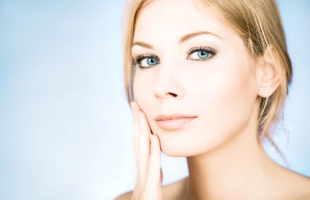 We know that a healthy diet can help prevent a number of diseases and conditions, including Type II diabetes and some heart diseases. While we might discuss our diet and lifestyle choices with our general physicians, we sometimes forget to ask our dermatologist how what we eat is affecting our skin.
We know that a healthy diet can help prevent a number of diseases and conditions, including Type II diabetes and some heart diseases. While we might discuss our diet and lifestyle choices with our general physicians, we sometimes forget to ask our dermatologist how what we eat is affecting our skin.
Approximately 14 million people in the United States have rosacea, a skin disorder that causes inflammation of the cheeks, nose, chin, forehead, or eyelids. For some people, it may appear as redness – think severe blushing – or swelling, sometimes accompanied by acne flare-ups.
While you can’t necessarily prevent or control the symptoms of rosacea with diet alone, there are certain foods that may be associated with rosacea flare-ups. According to Chicago Dermatologist and Skin Care Authority, Amy Forman Taub, MD, the Medical Director of Advanced Dermatology and Assistant Clinical Professor, Northwestern University Medical School, Department of Dermatology, some foods and beverages may cause dilatation of the blood vessels in the face, or may be associated with inflammation.
To control symptoms of rosacea, Taub recommends avoiding alcoholic beverages, especially red wine and beer, along with hot drinks like coffee, hot chocolate and hot cider.
“Due to the increased heat or vasodilation from these liquids, we recommend people prone to rosacea avoid them,” said Taub. “Similarly, foods that have been reported to flare rosacea include yogurt, citrus fruits, bananas, spinach avocados, vinegar, soy sauce an spicy foods.”
 “Anything that can cause an elevated temperature of the skin can make it rosacea worse,” Taub said. “Sun, wind, cold and humidity, hot baths, saunas, exercise, hot flashes, caffeine withdrawal, and stress in addition to the foods listed above can be culprits.”
“Anything that can cause an elevated temperature of the skin can make it rosacea worse,” Taub said. “Sun, wind, cold and humidity, hot baths, saunas, exercise, hot flashes, caffeine withdrawal, and stress in addition to the foods listed above can be culprits.”
While all of the elements mentioned can be inflammatory, triggers vary from person to person.
“Instead of avoiding the whole list of foods and things that have been reported to make it worse, find out which are relevant to you. If you find red wine makes you flush, perhaps white wine or another drink would be better.”
If you’re prone to rosacea but can’t imagine giving up your morning java, try to drink your beverage at a cooler temperature. Similarly, because exercising has so many health benefits, it shouldn’t be skipped altogether.
“After workouts, have a cool down period and put cool compresses on your face,” Taub said. “Green tea is also known to be helpful for rosacea so drink it iced.”
Now that we know what items can aggravate the condition, you might be wondering if there is anything that can help improve or prevent symptoms.
“There are people who tout eating whole grains, fresh fruits and vegetables, tofu, seaweed and berries,” said Taub. “While certainly these are healthy choices, there hasn’t been any scientific confirmation that this helps to keep rosacea quiet.”
Others recommend keeping an alkaline diet, ie avoiding acidic foods, yet this is also unconfirmed by medical literature.
